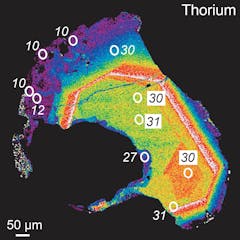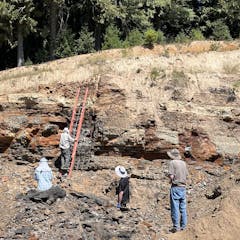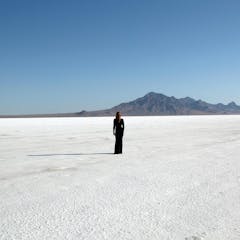
Articles on Geology
Displaying 1 - 20 of 343 articles

Experts say the ‘reimagining’ of the South Australian Museum will destroy its crucial contributions to science.

Measuring the concentration of radioactive elements in a single, sand-size crystal reveals the growth of the Himalayan mountain range over time.

When the soil ‘ceiling’ collapses, you end up with a hole exposing a cavity previously hidden underground.

Scientists Jan Zalasiewica and Erle Ellis on the recent decision to reject a proposal for a new geological epoch, the Anthropocene. Listen to The Conversation Weekly podcast.

The idea cannot be stopped, even if geologists have voted not to recognise a new epoch.

Deep-sea sediments show how the changing orbits of Earth and Mars are linked to past global warming and the speeding up of deep-ocean eddies.

Geologists recently voted down a proposal to formally recognise the Anthropocene.

Cratons are pieces of ancient continents that formed billions of years ago.

While NASA rovers on the surface of Mars look for hints of life, researchers back on Earth are studying ‘echoes of life’ from ancient basins – hoping that the two sites might be similar.

As space travel and lunar exploration becomes a near-future reality, we should consider the impact of human activities on the lunar environment.

Sarah Nance uses geologic data and a variety of artistic media to help people think about their place in the landscapes they use and occupy.

At Q’s of course! But he doesn’t pull them out of his sleeve. In Spectre (2015), Daniel Craig and Ben Whishaw play the famous spy and his gadget supplier.

Our new study reveals a mosaic of habitable landscapes – now submerged by the ocean – once supported up to 500,000 people living in Australia’s northwest.

The Anthropocene began quickly, but will last deep into the geological future.

For decades, scientists have tried to uncover the cause of long-term changes in Earth’s biodiversity. New simulations point at geography playing a critical role.

There are a lot of myths about crystals − for example, that they are magical rocks with healing powers. An earth scientist explains some of their amazing true science.

Mineralogical analysis of 5,000-year-old stone beads from Turkana, Kenya suggest a novel mortuary tradition by early pastoralists.

A distant lump of space rock may have a surprising amount in common with the core of our own planet.

Mercury has shrunk by7 km. Most of this happened long ago, but now we have evidence that it continues.

Like icy thermometers, glaciers overlying volcanoes shift according to temperature changes below.
